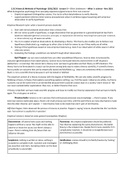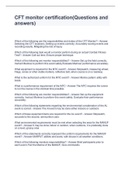Resume
Summary 2.3C History & Methods of Psychology - Lecture 3 (first part) &4 – Olive Lindemann – What is science - Nov 2021
- Cours
- Établissement
2.3C History & Methods of Psychology- 2021/2022 - Lecture 3 (first part) &4 – Olive Lindemann – What is science - Nov 2021
[Montrer plus]





